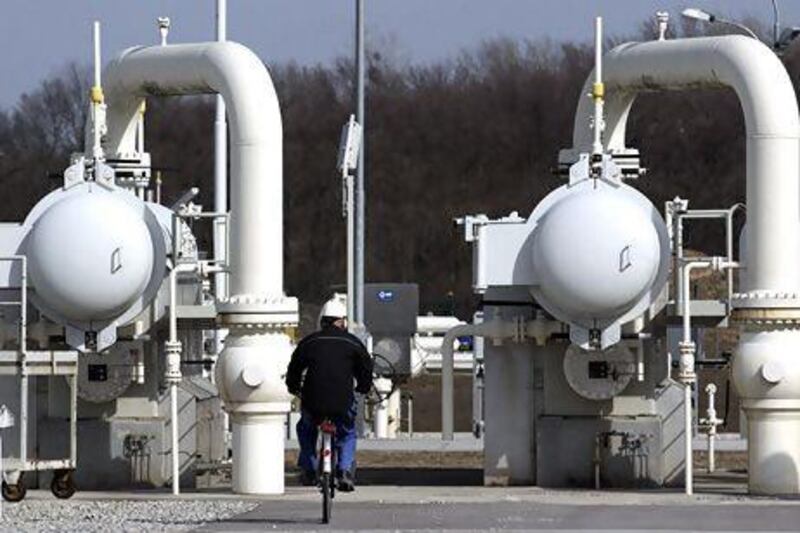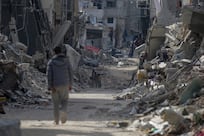Nabucco West, the OMV-backed plan to pipe Azeri gas to western Europe, has been rejected, ending one of the most drawn-out contests in the hydrocarbons world.
A BP-led consortium developing the Shah Deniz gasfield in Azerbaijan, told Nabucco shareholders the 3,900-kilometre pipeline route had been rejected, OMV said yesterday. The competing Trans-Adriatic Pipeline (Tap) that crosses Albania and Greece to Italy has reportedly been chosen.
"The decision does not influence OMV's strategy of growing upstream and integrated gas," said OMV, which is a quarter owned by Abu Dhabi's International Petroleum Investment Company. "OMV intends to play a role in further securing and diversifying the gas supply to Europe and will assess alternatives to complement the existing supply routes."
Shares of OMV and Hungary's MOL, another Nabucco investor, rose after the announcement.
"This was quite a capital-intensive project but in politically unstable regions," said Daniel Damaska, a senior analyst at Raiffeisenbank in Vienna.
The decision put an end to a decade-long contest. Driven by a desire to diversify gas supply away from Russia, European investors homed in on Azerbaijan, where officials hoped that the Shah Deniz gasfield, under development by BP, Statoil, Total and its own State Oil Company, could help ramp up the nation's annual gas production to 50 billion cubic metres.
Of all the plans to transport that gas to Europe, Nabucco was the most ambitious or most impractical, depending on who you asked. Deemed "inevitable" in 2009 by José Manuel Barroso, the European Commission president, Nabucco was to have a capacity of 31 billion cubic metres and a budget of €7.9 billion (Dh37.78bn).
"Nabucco was always somehow a little bit doubtful," said Mr. Damaska. "It's a huge distance, and from the beginning Turkey was somehow always blocking the negotiations and [given] the route with all these countries, you cannot rely on what happens next."
As the competition grew tighter, Nabucco shareholders shrank the pipeline to a third of its original span, eliminating the Turkish section, and rebranded it Nabucco West. OMV and MOL also bought a 20 per cent stake in Pearl Petroleum, the Crescent Petroleum and Dana Gas joint venture operating in the Kurdish region of Iraq.
But last year MOL stopped approving its budget for Nabucco. Germany's RWE, a Nabucco investor, dropped its stake this year; OMV sold it last month to GDF Suez.
Nabucco owes its name to the 1841 Giuseppe Verdi opera, which executives attended 11 years ago as they mapped the pipeline in Vienna. Said the composer of the work: "Though I had many difficulties to fight against, it is certain that 'Nabucco' was born under a lucky star."





